Ceylon Tea Benefits, Nutrition, Types, And Side Effects
This tea will not only keep your weight in check but also protect you from several ailments.

Image: Shutterstock
Ceylon tea has a rich flavor and aroma, making it a popular choice. It may reduce the risk of cancer and diabetes, help with weight loss, and promote heart health. Ceylon tea benefits your health in several other ways. It has high antioxidant levels, flavonoids, and essential compounds that prevent and help manage a variety of ailments.
However, you have to be mindful of the quantity of Ceylon tea you may consume. If you are wondering about the recommended daily quantity for tea consumption and if overindulgence may affect your health, we have the answers. This article explores Ceylon tea types, their health benefits, preparation method, and potential side effects. Take a look.
In This Article
What Is Ceylon Tea?
Ceylon tea is made from the dried leaves of Camellia sinensis. While most teas are named after the plant they are made from, this beverage is named after the region. It contains antioxidants like quercetin, myricetin, and kaempferol that make it one among the healthiest beverages (1).
 Trivia
TriviaCeylon tea is available in different types. They are produced from the same plant but are processed differently. Keep scrolling to know in detail.
Key Takeaways
- Ceylon tea is rich in anti-oxidants and available in black, green, and white variants.
- Ceylon tea reduces the risk of cancer and high blood pressure, prevents kidney stones, and promotes skin, heart, and brain health.
- However, drinking more than five cups of Ceylon tea per day may have some negative effects.
Types Of Ceylon Tea
- Black Tea
This is the most popular tea among Ceylon tea types. It is available in different flavors and aromas based on where these tea plants are cultivated. They are generally grown in highlands. Black tea from high-elevation regions is lighter in color while that from lower-elevation areas is darker, reddish-orange with bolder tasting notes. The benefits of black tea include its potential to improve heart health, boost metabolism, and provide antioxidants.
- Green Tea
It is cultivated in the Uva province. It has stronger malty or nutty notes and a bolder flavor. It is rich in antioxidants, which contribute to the many green tea benefits and its preparation is different from that of black tea.
- White Tea
It is expensive among other Ceylon tea types and is of the highest quality. It offers pine and mild sweetness notes and is produced from the buds. Its caffeine content is low and has more antioxidants than green or black tea. These antioxidants contribute to the benefits of white tea that make it a popular choice for overall health. However, there are more white tea benefits, such as helping with weight loss, reducing inflammation, and being beneficial for acne, that make it a one-of-a-kind beverage option.
Drinking Ceylon tea is linked with some potential health benefits. Let’s discuss them in the next section.
Health Benefits Of Ceylon Tea
1. May Help With Weight Loss
Studies suggest that intake of black or green tea may help lose weight. Polyphenols (naturally occurring compounds) in black tea may help inhibit obesity by reducing oxidative stress (2). The theaflavins (antioxidant polyphenols) in this tea have also shown to have anti-obesity effects (3).
A study by the University of Birmingham, United Kingdom, found that drinking green tea may enhance the breakdown of fatty acids (fat oxidation) and help reduce the risk of obesity (4). The catechins in green tea may also help reduce body fat (5). Green tea extracts showed anti-obesity effects in rats fed with a high-energy diet (6). A review published in Molecules also suggests that the polyphenol metabolites in dark tea exhibit weight-loss properties (7).
A recent report from the World Health Organization (WHO) in May 2022 addressed Europe’s increasing obesity, indicating that 60% of the region’s population falls into the categories of overweight or obese.
2. May Promote Heart Health
The flavonoids in black and green teas may prevent atherosclerosis (build-up of fat on artery walls) (8). A study by the University of Connecticut School of Pharmacy, USA, found that green tea catechins decreased total and LDL cholesterol levels (9). Besides, black tea intake had also shown similar benefits (10). Black tea may also decrease C-reactive protein (found in blood plasma) levels and help reduce the risk of cardiovascular disease (11).
3. May Regulate Blood Sugar Levels
Ceylon tea may help treat type2 diabetes. Green tea intake was found to reduce fasting blood glucose levels. However, it did not significantly affect fasting blood insulin. More studies are warranted to understand the long-term effects of green tea intake on fasting insulin (12). A review published in the Journal of General Internal Medicine suggests that intake of fewer than four cups of tea per day may lower the risk of type 2 diabetes (13). The catechins in tea are also said to reduce blood glucose or insulin levels (14).
In another study on rats, green tea extract given at a dose of 200 mg/kg could significantly reduce blood glucose levels (15). Black tea may also decrease postprandial (post-meal) blood glucose levels in normal individuals and those with pre-diabetes (16). Another study linked coffee and green tea intake to a reduced risk of type2 diabetes. This benefit is attributed to their caffeine content (17).
4. May Reduce The Risk Of Cancer
The catechins in green tea have chemopreventative properties that may help prevent prostate cancer (18). The antioxidant effects of green tea may also offer protection against cancer (19). Researchers found that flavonoid compounds (which are also present in tea) may inhibit the growth of cancer cells (20). Besides, epigallocatechin gallate (EGCG), a primary compound in green tea, has chemopreventive ability (21).
5. May Boost Brain Health
Black tea intake may help improve mental alertness and attention (22). L-theanine, an amino acid in tea, is found to promote mental health (23). According to studies, green tea intake may reduce the risk of cognitive decline while black tea may lower the risk of anxiety and depression (24),(25).
6. May Lower Risk Of High Blood Pressure
A review published in Nutrients suggests that black tea may lower blood pressure in hypertensive patients (26). However, more studies are needed to understand the benefit of Ceylon tea in humans.
7. May Prevent Kidney Stones
Epigallocatechin-3-gallate (EGCG), a type of catechin present in tea, may help prevent and treat kidney diseases (27). A study suggests that intake of green tea may prevent the formation of renal stones (28). Besides, a high catechin intake is also shown to prevent the formation of calcium oxalate monohydrate (COM) stones (29).
8. May Relieve Arthritis Symptoms
The bioactive polyphenolic compounds in black tea may help prevent arthritis (30). A study conducted by the National Cheng Kung University Hospital, Taiwan, found that regular tea intake may boost bone mineral density (BMD) (31). Another study on mice suggests that the antioxidant properties of Epigallocatechin-3-O-gallate (EGCG) may help prevent inflammatory bone loss in periodontitis (gum infection) (32). Tea intake is also said to reduce the risk of osteoporosis (weakening of bones) (33).
9. May Improve Skin Health
Tea extracts are rich in polyphenols that help improve skin appearance and reduce skin damage (34). A study indicates that green tea polyphenols are effective chemopreventive agents and may act as a natural alternative for photoprotection (against UV rays) (35). Besides, green tea intake may improve collagen and elastin fiber production, diminish the impact of photoaging, and have an anti-wrinkle effect (36).
It is now clear that sipping a few cups of Ceylon tea every day may help prevent or treat several ailments. But how do you make Ceylon tea? Scroll down to know in detail.
How To Make Ceylon Tea?
1. Simple Ceylon Tea
What You Need
- Ceylon tea leaves – 1 teaspoon
- Water – 8 ounces (237 ml)
Process
- Boil the water at around 90 to 96 degrees Celsius in an electric kettle with a temperature setting.
- Add a small handful of dried leaves to a cup (237 ml) of boiling water.
- Steep them for five minutes.
- Strain Ceylon leaves and pour hot tea into a teacup.
2. Spicy Ceylon Tea
What You Need
- Dilmah pure Ceylon tea – 1 tablespoon
- Green cardamom pods – 12
- Fennel seeds – 1 teaspoon
- Black peppercorns – 12
- Cloves – 6
- Cinnamon stick – 1
- Ginger – 3 cm
- Jaggery powder – 1 tablespoon
- Full-cream milk – 500 ml
Process
- Pound the cardamom pods, peppercorns, cloves, fennel seeds, cinnamon sticks, and ginger into a coarse paste.
- Put the pounded spices and the milk into a small saucepan and place over medium heat.
- Stir in the jaggery. When the milk reaches the boiling point, remove from the heat and gently stir in the tea leaves. Cover and infuse for 5 minutes.
- Pour the tea through a small sieve into a jug. Pour the tea into glasses from a height (about 30 cm/12 inches) to create foam.
3. Iced Mango And Ceylon Tea
What You Need
- Ceylon teabags – 1
- Water – 4 cups
- Mango juice – as needed
- Ice cubes – as needed
Process
- Pour 4 cups of water into a pot and place it on high heat. Turn off the heat once you see small bubbles forming at the bottom of the pot.
- Steep 4 tea bags for 2 minutes.
- Let it cool down. Then place in the refrigerator.
 Quick Tip
Quick Tip- Drop some ice cubes into a cup. Fill the cup halfway with mango juice and fill the rest with the cold Ceylon tea.
Buying the best Ceylon tea is key to get the desired taste and benefits. In the next section, we discuss what you need to look for before making a purchase.
How To Buy The Best Ceylon Tea?
Always look for a unique lion logo on the tea package. It is a symbol of a guarantee for 100 percent pure Ceylon tea. The logo belongs to the Sri Lanka Tea Board and is globally trademarked.
A blogger details his experience visiting Sri Lanka and living in a tea plantation. He wrote, “Another thing you’ll quickly realise is that, the locals are absolutely crazy about tea. Stressed? Have tea. Hungry? Have tea. Feeling sick? Have tea. Too stuffed from lunch? Have tea. Just woke up from an afternoon nap? HAVE. TEA. (i)”
Drinking Ceylon tea is generally considered safe. But are there any side effects associated with excess intake?
What Are The Side Effects Of Ceylon Tea?
Consuming Ceylon tea in moderate amounts is considered safe. But drinking more than five cups a day or consuming more than 300 mg of caffeine per day may cause certain side effects. It may increase the risk of coronary heart disease, miscarriage, and arterial hypertension and stiffness (37). It may also cause headaches, anxiety, and insomnia (38). Another study suggests that increased caffeine intake may interact with over-the-counter or prescription drugs (39). Besides, caffeine intake during pregnancy may result in an increased risk of fetal growth restriction (40). Excess green tea intake may also lead to thyroid dysfunction due to its high catechin content (41).
The Bottom Line
The benefits of Ceylon tea go beyond its delightful taste. Ceylon tea is loaded with potent antioxidant properties that promote overall health. It may help boost heart, brain, and kidney health. It may help manage diabetes and aid weight loss too. It is also good for your skin as it delays early signs of aging and stimulates collagen production. You can choose from green, black, or white Ceylon tea variants to reap these benefits. However, moderate intake is advised as excess consumption can cause problems. If you experience any adverse effects, limit its use and seek medical advice.
Frequently Asked Questions
Does Ceylon tea make you sleepy?
No. Ceylon tea is high in caffeine content, and excess consumption of this tea may cause insomnia (sleep disorder).
When should I drink Ceylon tea?
Drinking Ceylon tea in the morning can be beneficial. The flavonoid compounds in this tea may help regulate blood pressure and prevent heart problems.
Is Ceylon tea better than green tea?
Ceylon tea contains more antioxidants when compared with green tea.
What does Ceylon tea taste like?
Ceylon tea is recognized for its rich, bold, and robust flavor. The tea has a refreshing quality accompanied by floral and citrus notes in its aroma. However, the taste may slightly vary according to the type. White Ceylon tea has a mildly sweet flavor, while black Ceylon tea has a rich, spicy flavor. Whether enjoyed on its own or with a splash of milk, Ceylon tea provides a unique and invigorating taste that appeals to those seeking a simple yet enriching tea experience. Its distinctive flavor and heavenly aroma make it a popular choice among tea enthusiasts and newbies alike.
Ceylon tea is packed with amazing health benefits that improve your metabolic health and protect you from various health problems. Check out the following video to learn more about its positive health effects of this aromatic tea.
Personal Experience: Source
StyleCraze's articles are interwoven with authentic personal narratives that provide depth and resonance to our content. Below are the sources of the personal accounts referenced in this article.
(i) How To: How my innate love for tea was deeply satisfied in Sri Lankahttps://medium.com/@gilliann91/how-my-innate-love-for-tea-was-deeply-satisfied-in-sri-lanka-bf50d09ff1c4
References
Articles on StyleCraze are backed by verified information from peer-reviewed and academic research papers, reputed organizations, research institutions, and medical associations to ensure accuracy and relevance. Read our editorial policy to learn more.
- Genetic Variation of Flavonols Quercetin Myricetin and Kaempferol in the Sri Lankan Tea (Camellia sinensis L.) and Their Health-Promoting Aspects
https://www.ncbi.nlm.nih.gov/pmc/articles/PMC4913054/ - Mechanisms of Body Weight Reduction by Black Tea Polyphenols
https://pubmed.ncbi.nlm.nih.gov/27941615/ - Green tea extract ingestion fat oxidation and glucose tolerance in healthy humans
https://pubmed.ncbi.nlm.nih.gov/18326618/ - Inhibition of pancreatic lipase by black tea theaflavins: Comparative enzymology and in silico modeling studies
https://pubmed.ncbi.nlm.nih.gov/27596423/ - A green tea extract high in catechins reduces body fat and cardiovascular risks in humans
https://pubmed.ncbi.nlm.nih.gov/17557985/ - Green tea extract induces genes related to browning of white adipose tissue and limits weight-gain in high energy diet-fed rat
https://pubmed.ncbi.nlm.nih.gov/28804438/ - A Review on the Weight-Loss Effects of Oxidized Tea Polyphenols
https://www.ncbi.nlm.nih.gov/pmc/articles/PMC6099746/ - Tea flavonoids and cardiovascular health
https://www.sciencedirect.com/science/article/abs/pii/S0098299710000737?via%3Dihub - Green tea catechins decrease total and low-density lipoprotein cholesterol: a systematic review and meta-analysis
https://pubmed.ncbi.nlm.nih.gov/22027055/ - Black tea consumption reduces total and LDL cholesterol in mildly hypercholesterolemic adults
https://pubmed.ncbi.nlm.nih.gov/14519829/ - Black tea reduces uric acid and C-reactive protein levels in humans susceptible to cardiovascular diseases
https://pubmed.ncbi.nlm.nih.gov/19963031/ - Effects of green tea consumption on glycemic control: a systematic review and meta-analysis of randomized controlled trials
https://www.ncbi.nlm.nih.gov/pmc/articles/PMC7350188/ - Tea Consumption and Risk of Type 2 Diabetes: A Meta-Analysis of Cohort Studies
https://www.ncbi.nlm.nih.gov/pmc/articles/PMC2669862/ - Tea and human health: biomedical functions of tea active components and current issues
https://www.ncbi.nlm.nih.gov/pmc/articles/PMC4322420/ - Green Tea (Camellia sinensis) Supplementation to Diabetic Rats Improves Serum and Hepatic Oxidative Stress Markers
https://www.ncbi.nlm.nih.gov/pmc/articles/PMC3813194/ - Black tea consumption improves postprandial glycemic control in normal and pre-diabetic subjects: a randomized double-blind placebo-controlled crossover study
https://pubmed.ncbi.nlm.nih.gov/28049262/ - The relationship between green tea and total caffeine intake and risk for self-reported type 2 diabetes among Japanese adults
https://pubmed.ncbi.nlm.nih.gov/28049262/ - New Insights Into the Mechanisms of Green Tea Catechins in the Chemoprevention of Prostate Cancer
https://www.ncbi.nlm.nih.gov/pmc/articles/PMC3665011/ - Antioxidant effects of green tea
https://www.ncbi.nlm.nih.gov/pmc/articles/PMC3679539/ - Flavonoids as Anticancer Agents
https://www.ncbi.nlm.nih.gov/pmc/articles/PMC7071196/ - Epigallocatechin Gallate (EGCG) Is the Most Effective Cancer Chemopreventive Polyphenol in Green Tea
https://www.ncbi.nlm.nih.gov/pmc/articles/PMC3509513/ - Black tea improves attention and self-reported alertness
https://www.sciencedirect.com/science/article/abs/pii/S0195666310008378?via%3Dihub - Effects of L-Theanine Administration on Stress-Related Symptoms and Cognitive Functions in Healthy Adults: A Randomized Controlled Trial
https://www.ncbi.nlm.nih.gov/pmc/articles/PMC6836118/ - Consumption of Green Tea but Not Black Tea or Coffee Is Associated with Reduced Risk of Cognitive Decline
https://www.ncbi.nlm.nih.gov/pmc/articles/PMC4020750/ - Anxiolytic effects of theaflavins via dopaminergic activation in the frontal cortex
https://pubmed.ncbi.nlm.nih.gov/30806570/ - Black Tea Lowers Blood Pressure and Wave Reflections in Fasted and Postprandial Conditions in Hypertensive Patients: A Randomised Study
https://www.ncbi.nlm.nih.gov/pmc/articles/PMC4344573/ - Protective Effects of Epigallocatechin-3-Gallate from Green Tea in Various Kidney Diseases
https://pubmed.ncbi.nlm.nih.gov/30615092/ - Preventive effects of green tea on renal stone formation and the role of oxidative stress in nephrolithiasis
https://pubmed.ncbi.nlm.nih.gov/15592095/ - Daily Green Tea Infusions in Hypercalciuric Renal Stone Patients: No Evidence for Increased Stone Risk Factors or Oxalate-Dependent Stones
https://www.ncbi.nlm.nih.gov/pmc/articles/PMC6412450/ - Tea and its consumption: benefits and risks
https://pubmed.ncbi.nlm.nih.gov/24915350/ - Epidemiological evidence of increased bone mineral density in habitual tea drinkers
https://pubmed.ncbi.nlm.nih.gov/11996609/ - Effects of O-methylated (-)-epigallocatechin gallate (EGCG) on LPS-induced osteoclastogenesis bone resorption and alveolar bone loss in mice
https://pubmed.ncbi.nlm.nih.gov/29226083/ - Association between tea consumption and osteoporosis: A meta-analysis
https://pubmed.ncbi.nlm.nih.gov/29245297/ - Applications of Tea (Camellia sinensis) and Its Active Constituents in Cosmetics
https://www.ncbi.nlm.nih.gov/pmc/articles/PMC6930595/ - Cutaneous photoprotection from ultraviolet injury by green tea polyphenols
https://pubmed.ncbi.nlm.nih.gov/11209110/ - A Review of the Role of Green Tea (Camellia sinensis) in Antiphotoaging Stress Resistance Neuroprotection and Autophagy
https://www.ncbi.nlm.nih.gov/pmc/articles/PMC6412948/ - Side effects of caffeine
https://pubmed.ncbi.nlm.nih.gov/19999796/ - Caffeine Use Disorder: A Comprehensive Review and Research Agenda
https://www.ncbi.nlm.nih.gov/pmc/articles/PMC3777290/ - Clinically significant pharmacokinetic interactions between dietary caffeine and medications
https://pubmed.ncbi.nlm.nih.gov/10976659/ - Maternal caffeine intake during pregnancy and risk of fetal growth restriction: a large prospective observational study
https://pubmed.ncbi.nlm.nih.gov/18981029/ - Goitrogenic/antithyroidal potential of green tea extract in relation to catechin in rats
https://www.sciencedirect.com/science/article/abs/pii/S0278691510003431
Read full bio of Reda Elmardi
Read full bio of Sindhu Koganti
Read full bio of Ravi Teja Tadimalla
Read full bio of Aparna Mallampalli






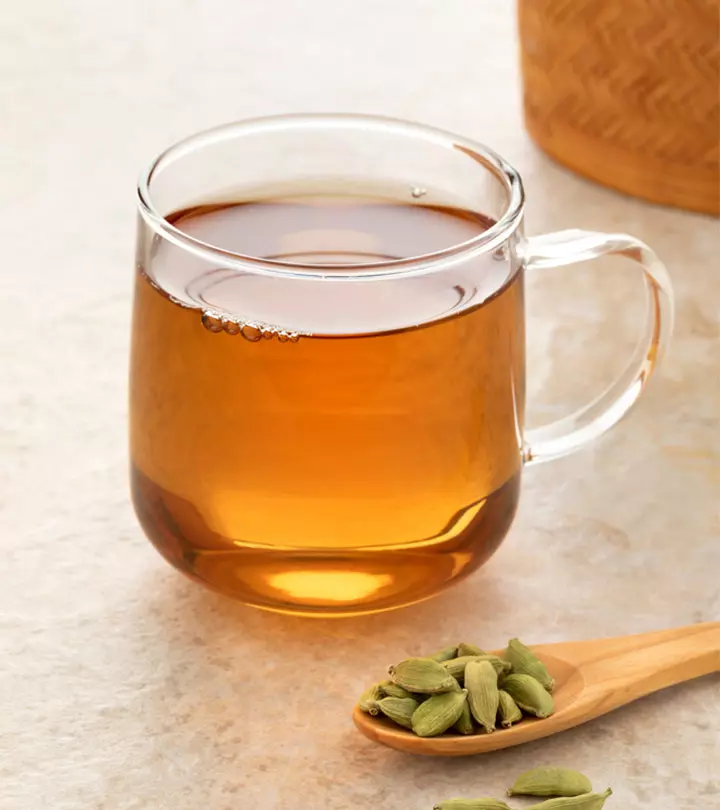

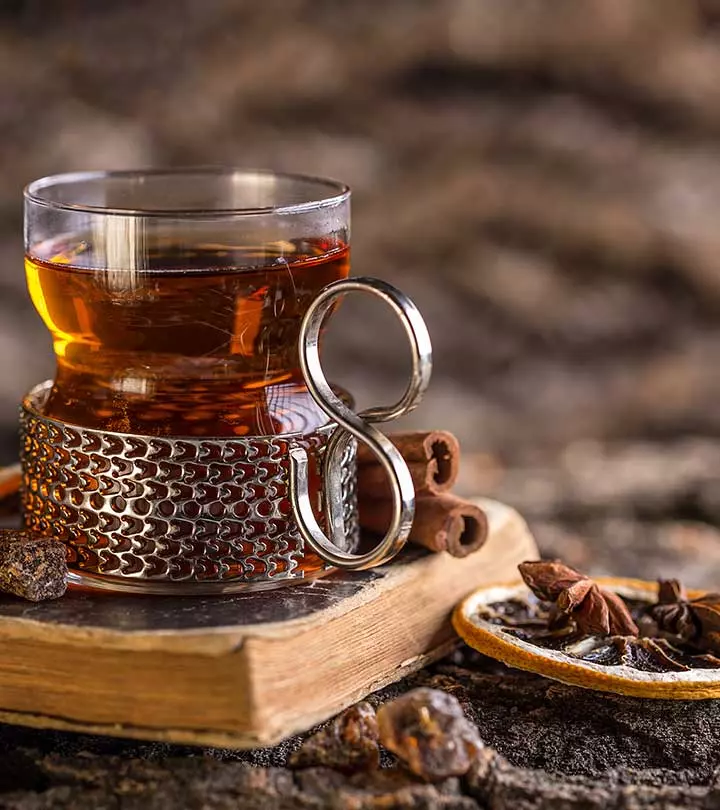
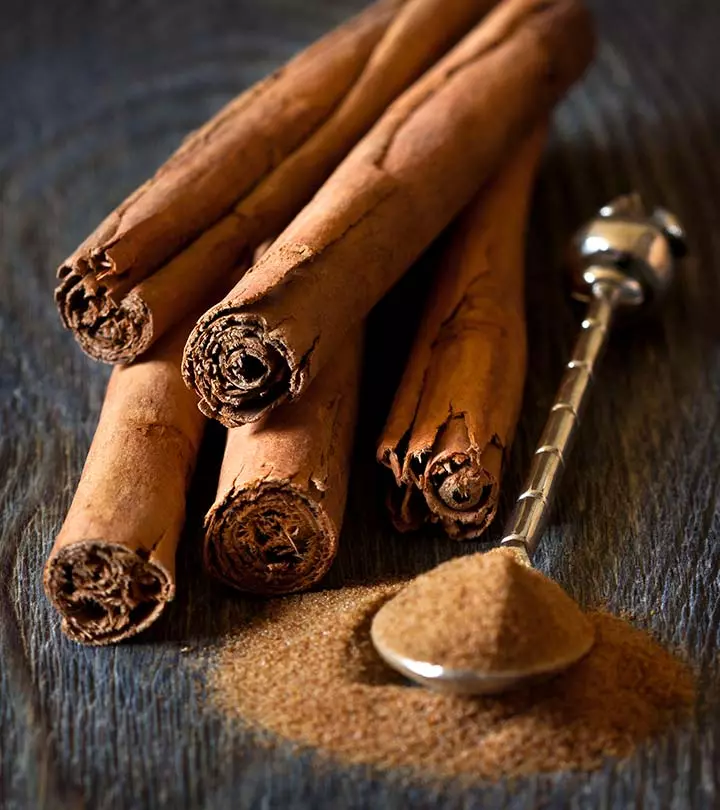
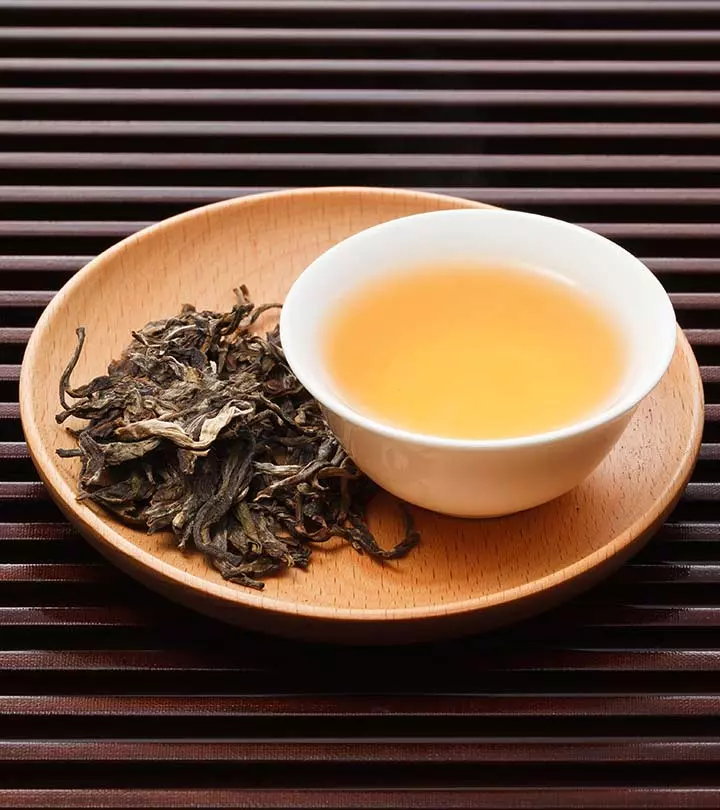

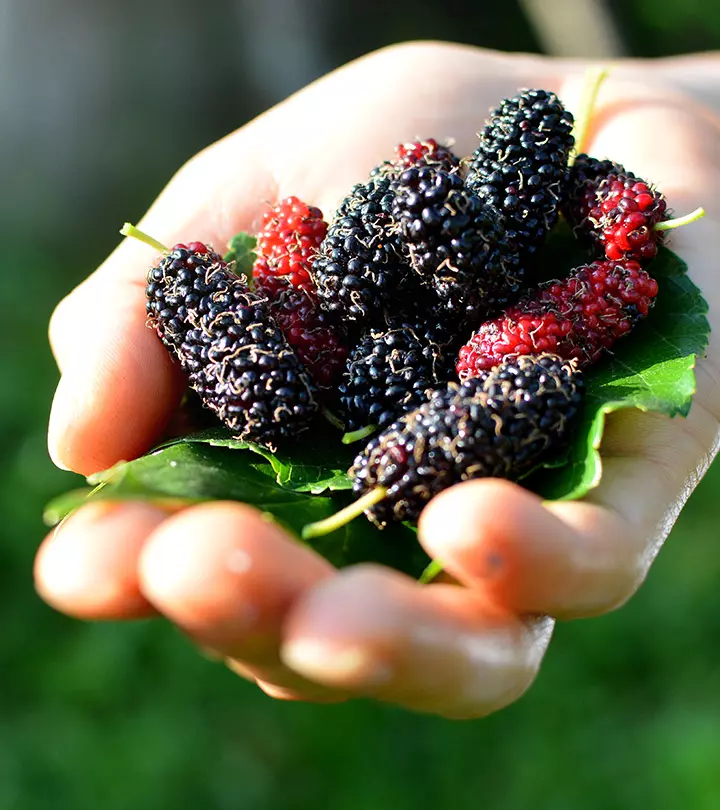

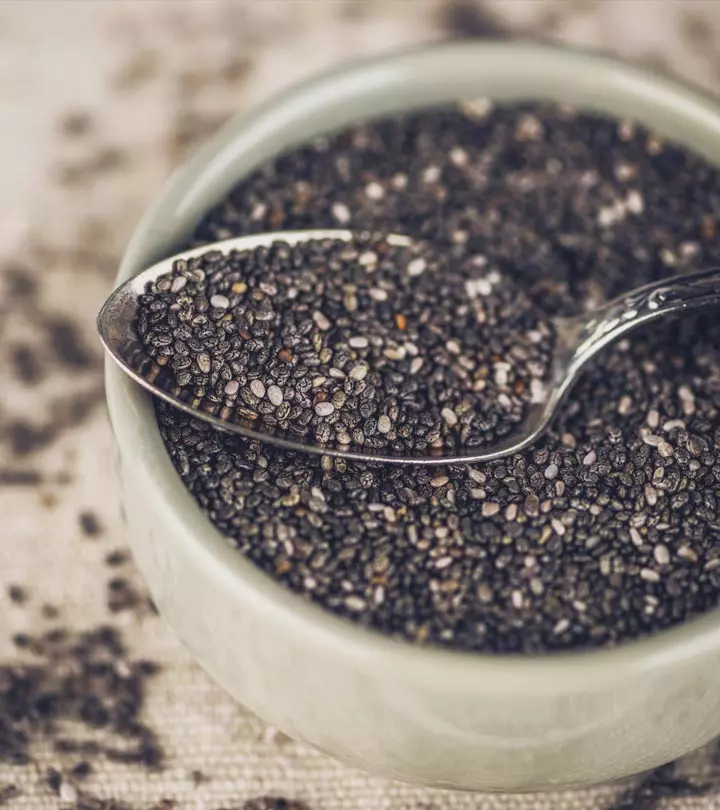
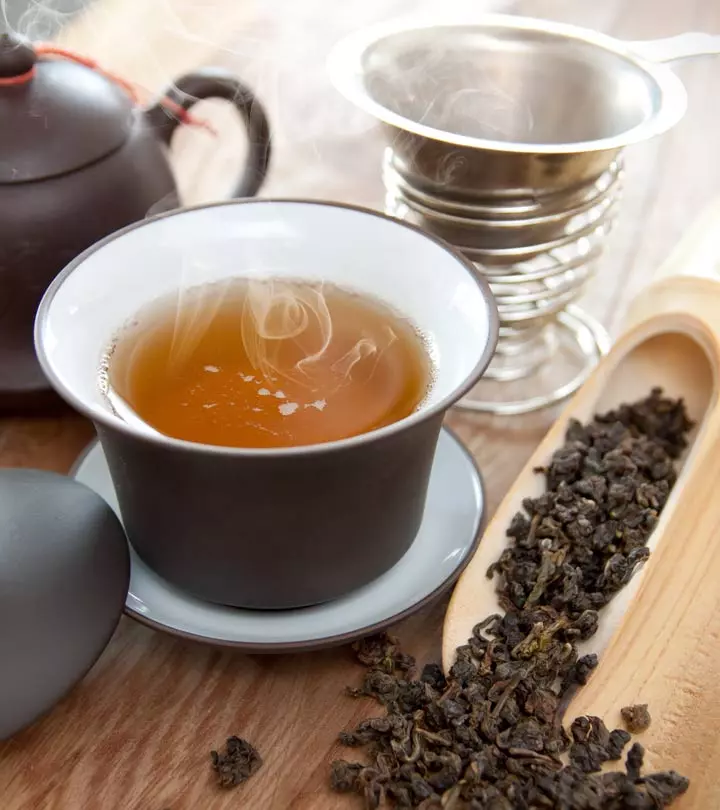


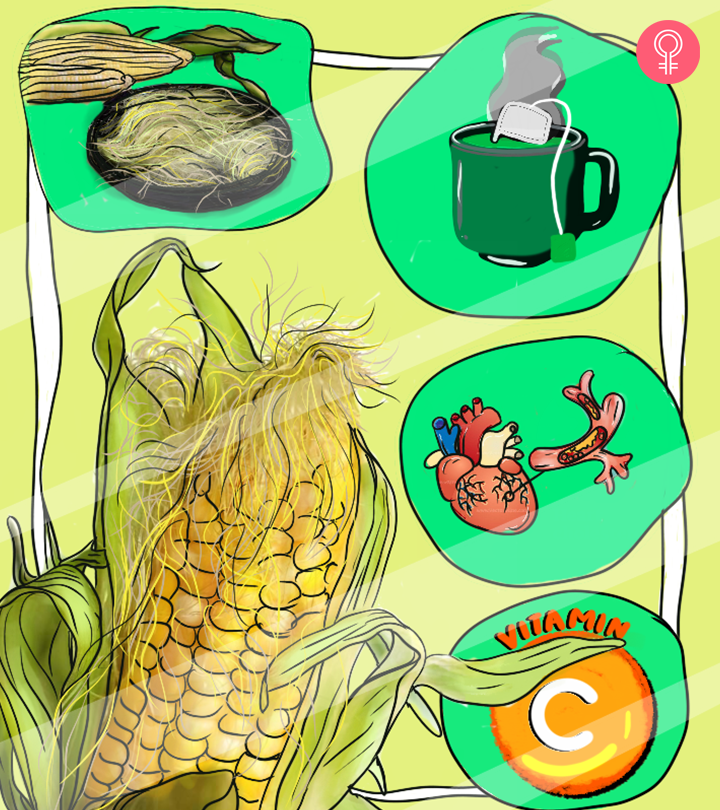
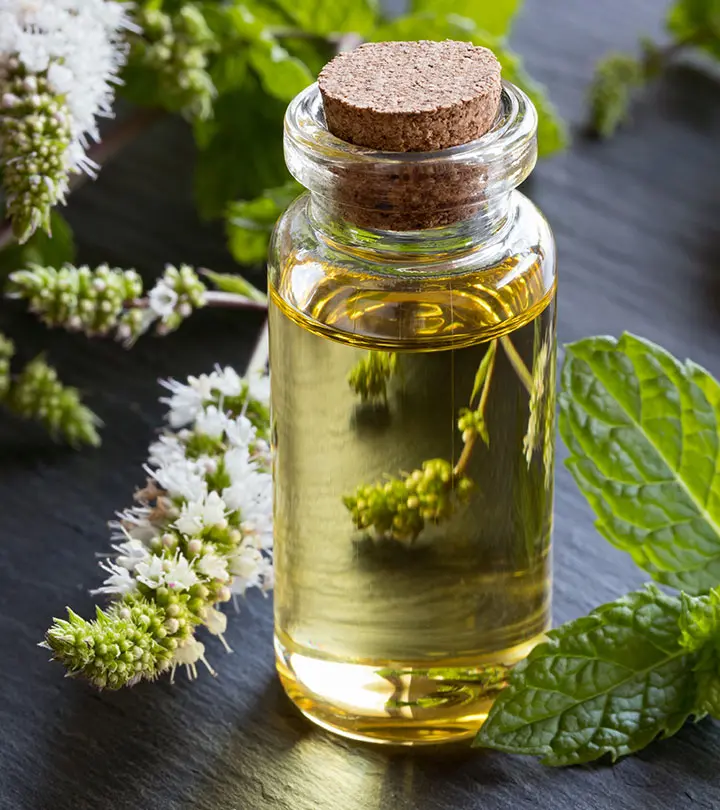
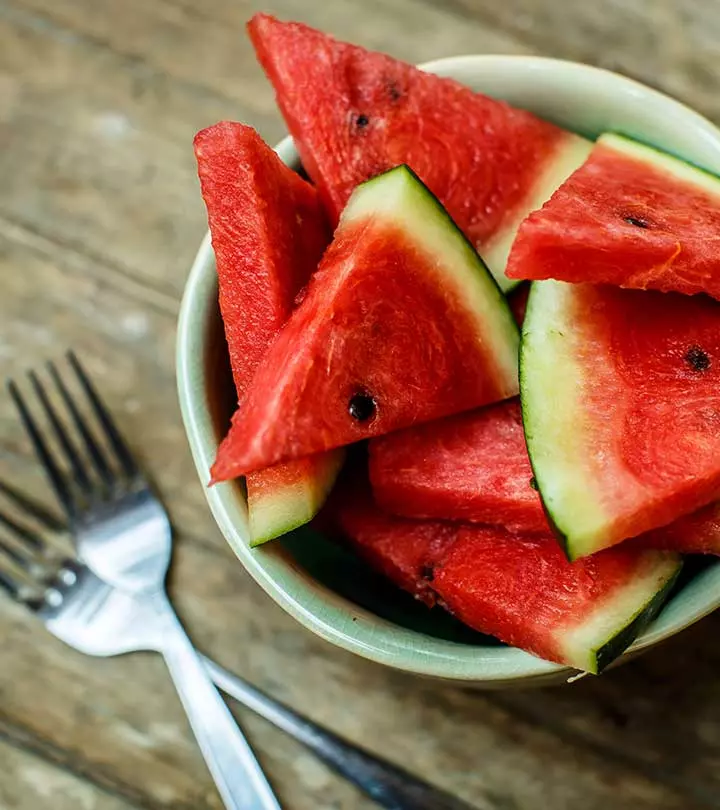
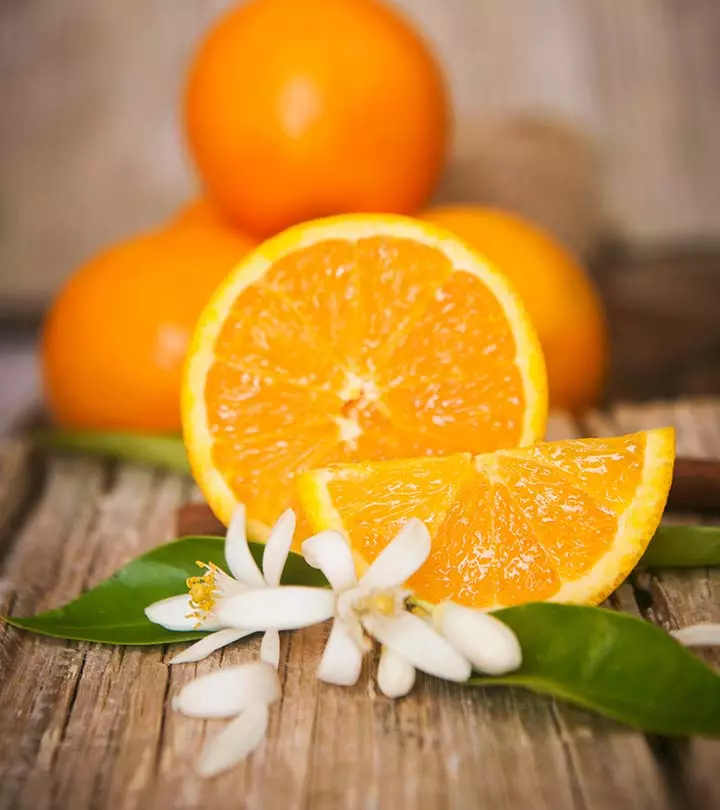
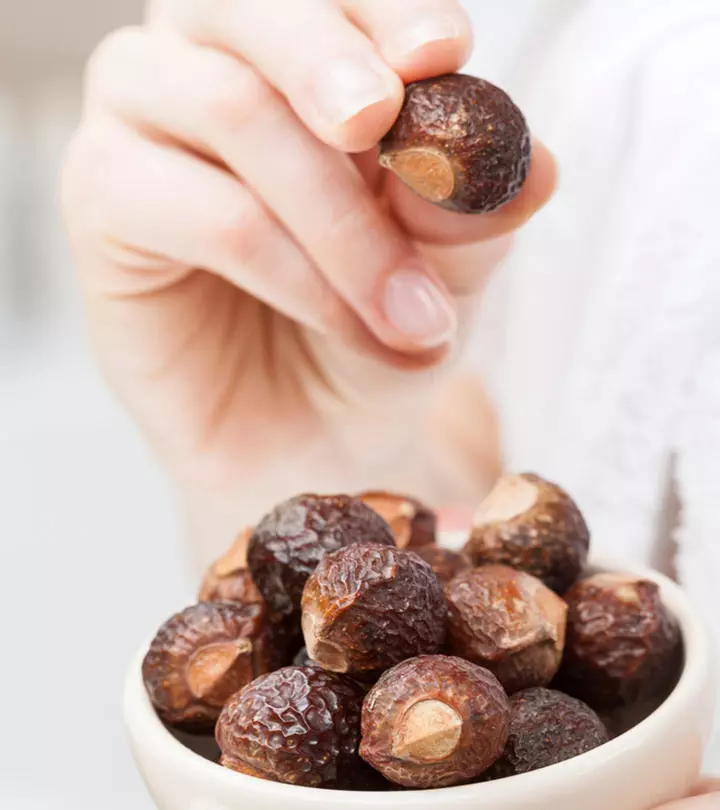
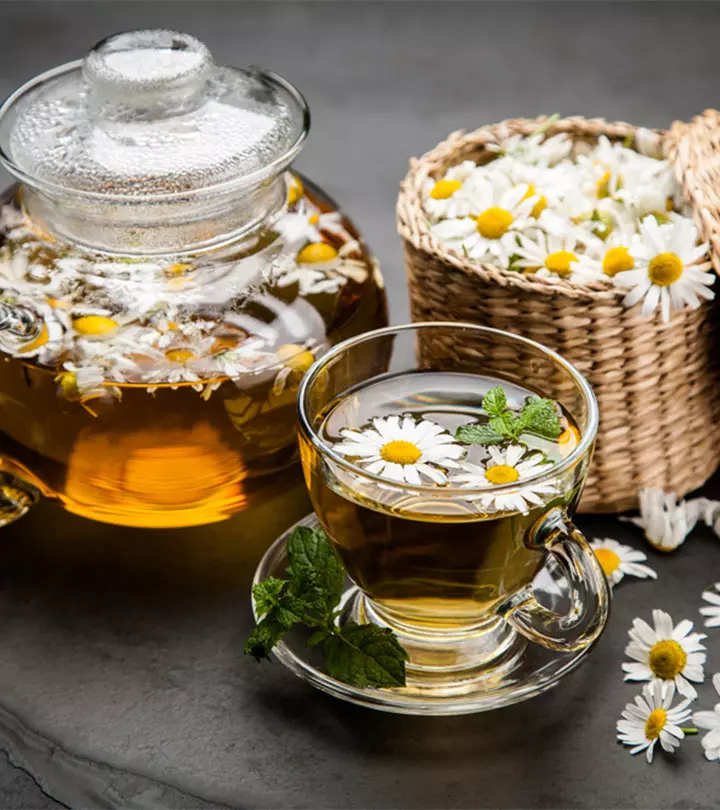
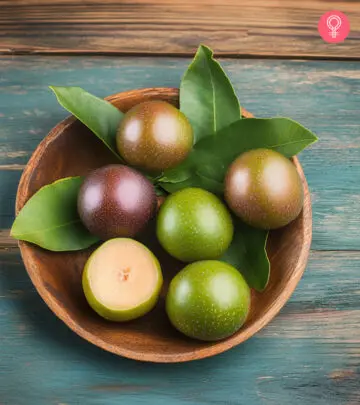
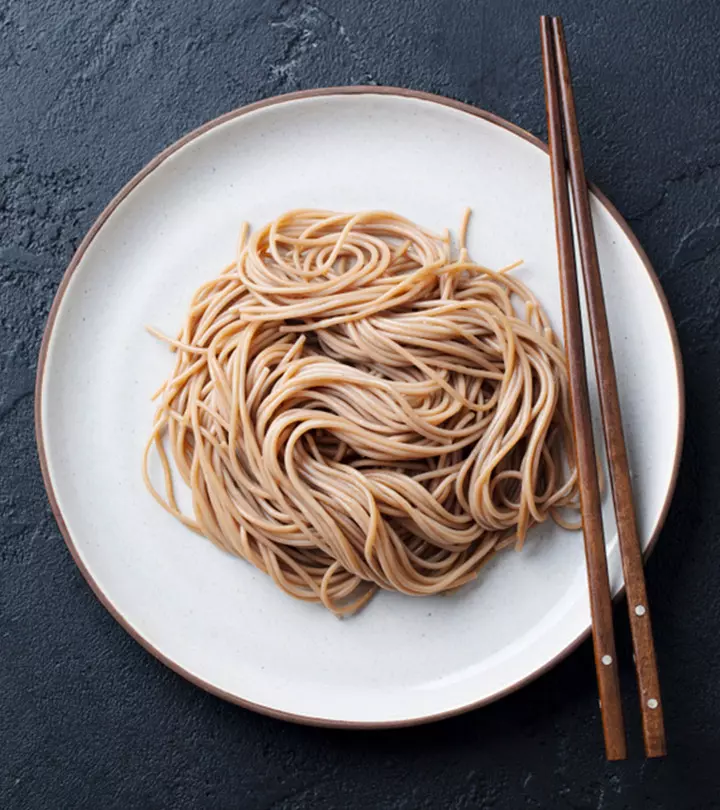
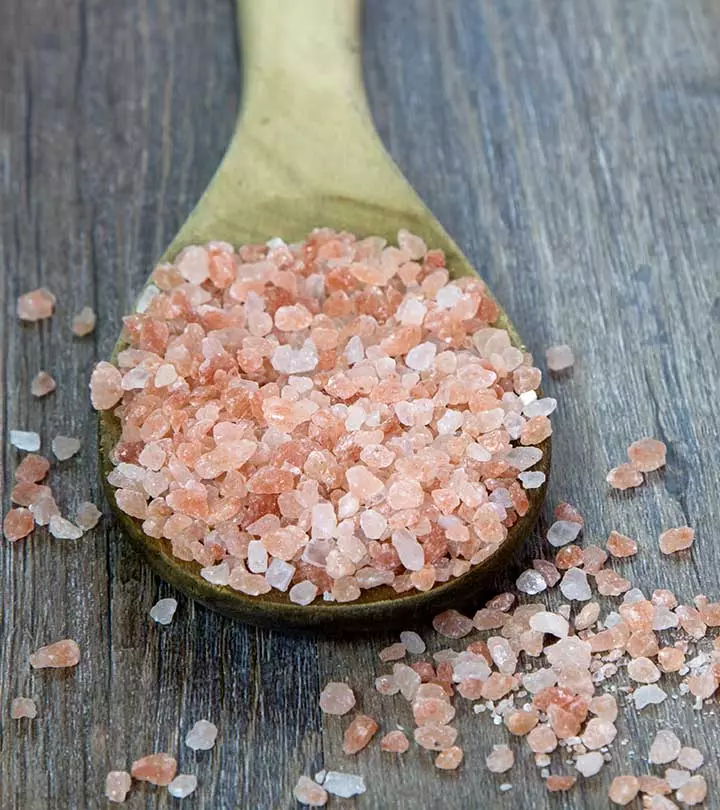
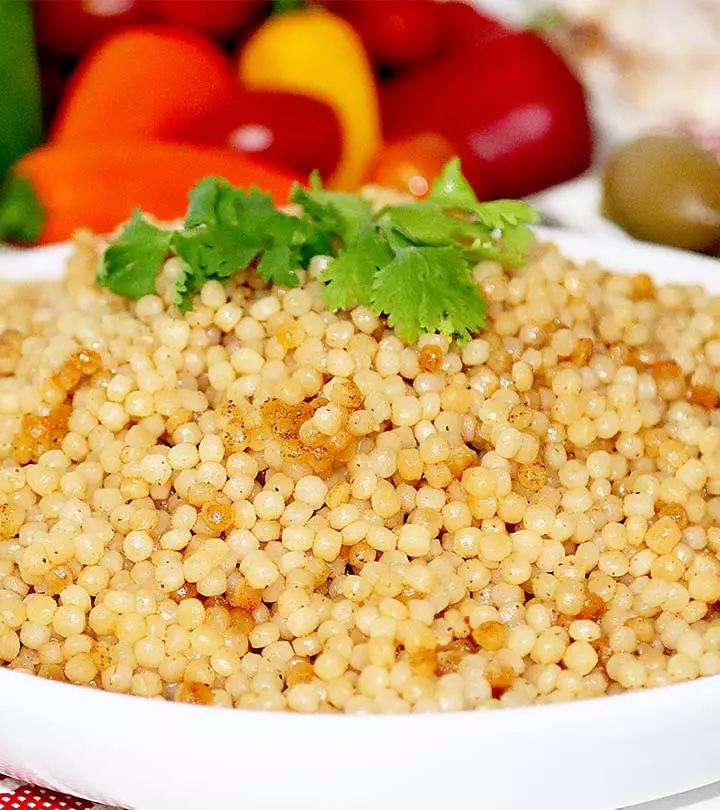
Community Experiences
Join the conversation and become a part of our empowering community! Share your stories, experiences, and insights to connect with other beauty, lifestyle, and health enthusiasts.